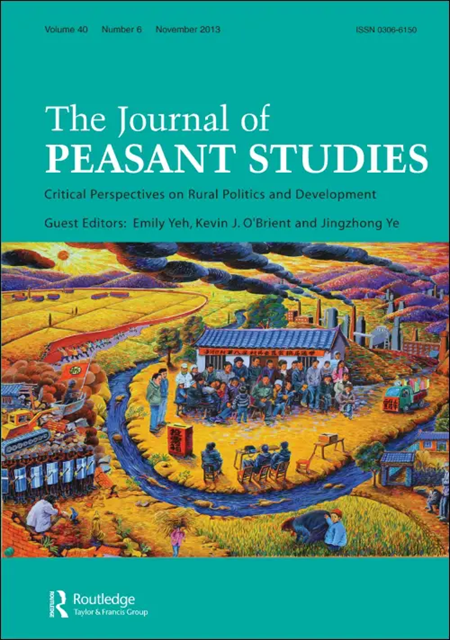抵制的权利:在b里约热内卢+20规范公民社会
IF 4.8
1区 社会学
Q1 ANTHROPOLOGY
引用次数: 27
摘要
根据对联合国可持续发展大会(里约热内卢+20)及其筹备会议的合作民族志研究,我们研究了联合国官方的“参与式”进程是如何让民间社会参与里约热内卢+20谈判的,通过寻求围绕共同声明达成共识等进程,同时促进和规范了争论。使民间社会代表专业化,并控制抗议活动,以保护广泛的谈判机会。我们记录了在这样做的过程中,官方参与性进程如何破坏了表达不同立场的权利。我们还发现,南方参加谈判的机会因缺乏资金、人力资源、地点和语言而受到限制。最后,我们说明了主要位于全球南方的一组非政府组织如何利用联合国主要集团的官方“参与进程”来建立联盟,以保护谈判文本中的资源权利语言。最后,我们认为,通过建立联盟的斗争,批评绿色经济的活动人士被纳入了复制其霸权的行列。本文章由计算机程序翻译,如有差异,请以英文原文为准。
The right to resist: disciplining civil society at Rio+20
Drawing on a collaborative ethnographic study of the United Nations (UN) Conference on Sustainable Development (Rio+20) and its preparatory meetings, we examine how the official UN ‘participatory’ process for engaging civil society in Rio+20 negotiations simultaneously enabled and disciplined contestation through processes such as seeking consensus around a common statement, professionalizing civil society representatives and controlling protests in order to protect broad access to negotiations. We document how, in doing so, the official participatory process undermined the right to voice diverse positions. We also find that Southern access to negotiations was limited by lack of funding, human resources, location and language. Finally, we illustrate how a group of non-governmental organizations based primarily in the Global South utilized the official UN Major Groups ‘participatory process’ to build alliances to protect resource rights language in the negotiating text. Ultimately, we argue that, through the struggle to build alliances, activists critical of the green economy became enlisted in reproducing its hegemony.
求助全文
通过发布文献求助,成功后即可免费获取论文全文。
去求助
来源期刊

Journal of Peasant Studies
Multiple-
CiteScore
10.50
自引率
17.60%
发文量
99
期刊介绍:
A leading journal in the field of rural politics and development, The Journal of Peasant Studies (JPS) provokes and promotes critical thinking about social structures, institutions, actors and processes of change in and in relation to the rural world. It fosters inquiry into how agrarian power relations between classes and other social groups are created, understood, contested and transformed. JPS pays special attention to questions of ‘agency’ of marginalized groups in agrarian societies, particularly their autonomy and capacity to interpret – and change – their conditions.
 求助内容:
求助内容: 应助结果提醒方式:
应助结果提醒方式:


